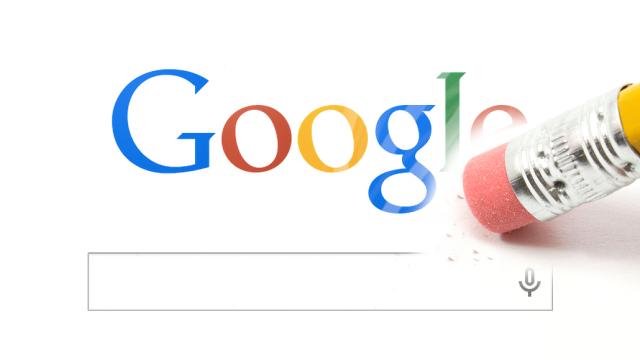Last week, Microsoft’s Bing joined Google in acquiescing to the EU high court’s “right to be forgotten” ruling, which allows European citizens to petition for the removal of search results about themselves that are “inadequate… no longer relevant, or excessive.” The Court of Justice sees it as a victory for privacy protection; Google sees only censorship. The company that aims to catalogue the world’s knowledge thinks it has a right to know it all.
For Google, and the many Google apologists, the court ruling is a sloppy, onerous drag — a burden for tech innovators and an impotent half-measure for privacy advocates. Google’s Chief Legal Officer, David Drummond, recently framed the problem as one between free expression and… nothing else. The Washington Post Editorial Board thinks “the right to be forgotten” is too vague. Jack Shafer of Reuters believes Internet privacy never existed in the first place. And the Harvard law professor Jonathan Zittrain has suggested that Google supply two types of search results: one that is unvarnished, and another that’s marked up by users explaining why they were so drunk in those photos.
That the ruling was intended to protect the reputation and privacy of vulnerable classes of citizens — victims of abuse, LGBT, youth, exonerated defendants — seems to have been lost in the belief that this is all a ploy for politicians to erase unflattering news articles about their past positions and affairs.
In actuality, the right to be forgotten is already protecting the people for whom it was intended. Legitimate requests Google has received include one from a man “who asked that we do not show a news article saying that he had been questioned in connection with a crime,” since he demonstrated that he was never charged, and another from a “mother who requested that we remove news articles for her daughter’s name as she had been the victim of abuse.” It’s not hard to imagine other worthwhile requests: a person’s sexual orientation being inappropriately revealed, or any number of false statements broadcast against an individual’s will and beyond their control.
Few have mentioned that Google’s objections are rooted in business motives as well. “The right to be forgotten” impedes the company’s ability to make money off our personal information. (Search engines will be forced to remove the offending links but the content will still exist on the Web; it just won’t be indexed and displayed in search results.)
In the same way that laws limit the kinds of data that governments, banks, and insurance companies can collect on us, why shouldn’t Google’s data collection be curtailed? Why is regulating Google’s information-processing called censorship, when something like the Fair Credit Reporting Act is viewed as smart policy? The FCRA ensures that certain consumer information, important for securing credit and employment, is accurate and gives citizens the power to challenge credit reporting agencies that record negative information about them. A Google search can also influence one’s ability to get a job or a loan. But the company clearly wants us to view the right to be forgotten as suppression of information rather than consumer protection.
It’s an unusual stance, especially given that Drummond admits that Google already removed certain kinds of search results before the right to be forgotten. Pirated content, defamatory material, and “other things prohibited by local law” are among them. But in many of these removals, Google includes a note explaining that search results were altered. If Google includes these notices for searches on people’s names it will undermine the privacy protection the ruling was intended to support.
The right to be forgotten is already embattled in this way; the website Hidden From Google is an effort to catalogue the links that Google has expunged after the ruling. While the site has only documented 17 links out of the 250,000 that citizens have contested, one fear is that sites like this, and possibly Google itself — as it did earlier this month — might disclose what’s been removed from name-search queries. This would sabotage the initial privacy petitions. And it would add to the reputational harm that the whole process was meant to fix. How search engines go about logging exclusions will be as important as the ruling itself.
From what source the contested information comes, whether the person in question is a public figure, and the timeline of relevancy are all factors that invite imprecision to the Court’s judgment. But “the right to be forgotten” is a valuable step toward empowering citizens. That individuals are getting a little more control over their own Google search page, and not having to resort to reputation management firms, or indefinite humiliation, seems a little more fair, even if Google doesn’t think so.
Picture: Adapted from Shutterstock/Keith Bell
